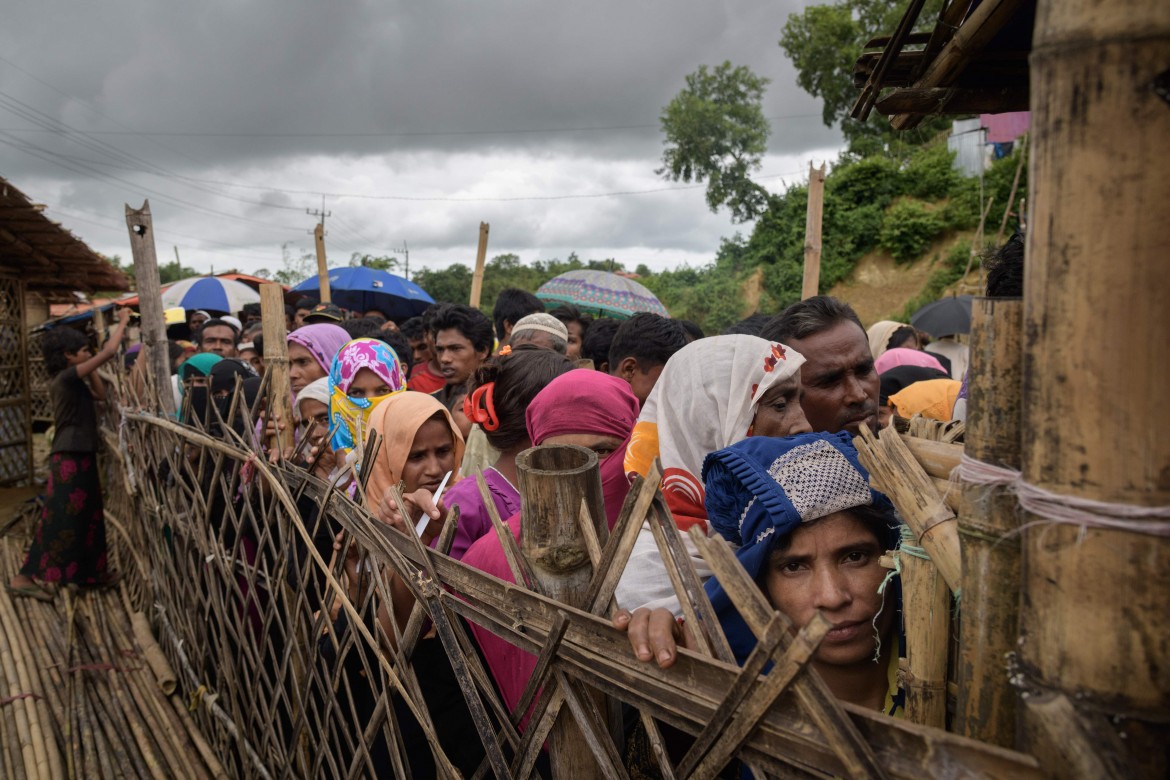Report
In Rohingya genocide, ICC takes first steps toward an investigation
The International Criminal Court will begin a preliminary examination into the murders, rapes, and razing of villages perpetrated by military forces and vigilantes against the Rohingya in Myanmar. The UN calls the violence a genocide.

The Chief Prosecutor of the International Criminal Court (ICC) has announced the launch of a preliminary examination into the violent measures that have resulted in the forced displacement of the Rohingya people to Bangladesh: the violation of fundamental rights, killings, sexual violence, forced disappearances, destruction, looting and persecution.
“Since the end of 2017, my Office has received a number of communications and reports concerning crimes allegedly committed against the Rohingya population in Myanmar and their deportation to Bangladesh,” said Fatou Bensouda, the ICC prosecutor, in a statement.
The journey toward justice has been a long and tortuous one, because Myanmar, which is not a signatory to the ICC Treatise, has refused access to the country to members of the Court trying to verify the truth of these accusations. In his statement, Bensouda clarified that, regarding the preliminary legal issue of the jurisdiction of the ICC, the prosecutor has received confirmation from the legal staff of the Court that jurisdiction certainly exists: while Myanmar is not a State Party to the ICC, Bangladesh is.
“A preliminary examination is not an investigation,” the prosecutor clarified, “but a process of examination of information available in order to reach a fully informed determination on whether there is a reasonable basis to proceed with an investigation pursuant to the criteria established by the Rome Statute.” Bensouda added, “This is the least we owe to the victims.”
Theoretically, under the Rome Statute, national courts have the primary responsibility to investigate and prosecute perpetrators of international crimes, and, in accordance with the principle of complementarity, the prosecutor’s office “will be engaging with the national authorities concerned with a view to discussing and assessing any relevant investigation and prosecution at the national level.”
But there isn’t even the slightest possibility that Myanmar will cooperate.
Bangladesh, however, clearly will. Around the same time as Bensouda’s statement, the Prime Minister of Bangladesh, Sheikh Hasina, announced that Dhaka would propose a plan of action with five points on the Rohingya issue, to be discussed in several multilateral meetings during the 73rd UN General Assembly. The latest expulsions have affected over 700,000 Rohingyas, but there are more than a million overall in Bangladesh.
If the legal process goes further—as is inevitable—and, after preliminary investigations, a proper legal investigation is started, the findings could lead to the establishment of an ad hoc tribunal, as has been done in the past. Needless to say, the Myanmar generals—after a UN report has called for them to be investigated for genocide (a word that Bensouda has not used so far)—will refuse to testify, at the risk of having arrest warrants issued with their names.
A conviction against them would likely remain on paper—but it would be an indelible stain. A person who is sentenced by the ICC has an international arrest warrant issued for them, enforceable at the border and on the territory of any of the 123 ICC member states.
Originally published at https://ilmanifesto.it/genocidio-rohingya-primo-passo-dellaja-verso-linchiesta/ on 2018-09-20
